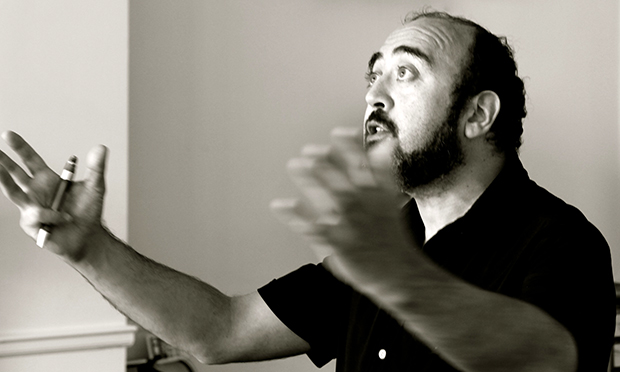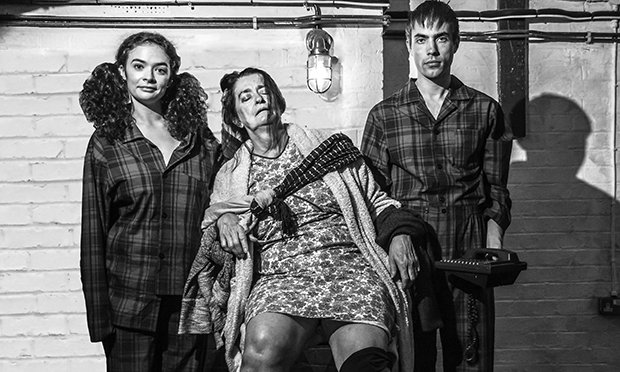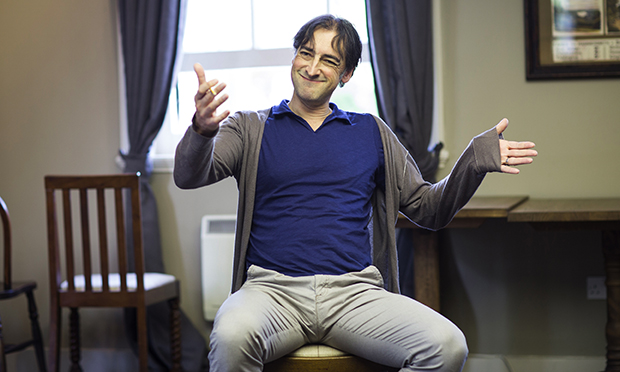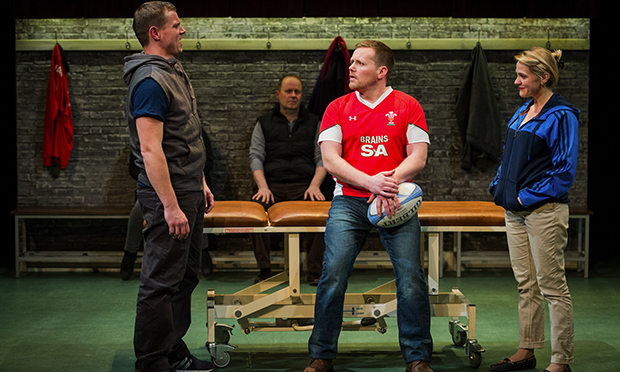
“We’re all the same stinking family!” exclaims Sergei, attempting to diffuse an argument between an Arab and a Jew at a birthday party. In Julia Pascal’s 2002 play Crossing Jerusalem everybody is connected. Arabs, Jews and Christians hailing from countless corners of the world live cheek by jowl in one of the oldest cities in the world.
Playing at the Park Theatre in Finsbury Park until the end of August, Crossing Jerusalem is set in the Israeli capital during the second Intifada, or Palestinian uprising, when buses and cafés were the frequent target of bombings. So the Kaufmann family is justifiably on edge.
Head of the household is Varda, a headstrong, workaholic, Jewish mother, who deals in real estate. Trudy Weiss as the matriarch is almost manic with paranoia, absently flitting from thought to thought, briefly breaking her stream of consciousness to criticise her daughter’s dress sense and her own lack of a grandchild.
Only when she is crossed do we feel the full intensity of her feeling. “This is our country. If it goes to hell then we’ll go with it,” she declares. All of the characters at some point make reference to how dire the situation is.
Everybody seems to have a claim to the disputed territory, and nobody a solution. So trauma is passed down through the generations with no suggestion of peace in sight. The state of Israel being as young as it is, the provenance of the homes Varda sells is inevitably called into question. An Arab family lived in their home before them – a neat metaphor for the wider political context.
The design by Claire Lyth and Ben Cowens is simple and effective, summoning the remorseless heat and intense sunlight on blinding, white stone. The play takes place over the course of 24 hours, highlighting a sense of the ephemeral. The citizens of Jerusalem are forced to live in the moment because tomorrow may never come.
Although Pascal says she had to omit some of the ‘Jewish-isms’ in the play for fear they would not be understood, there is still much laughter of recognition in the audience and a handful of great punchlines too. In an inversion of the famous quote, Varda remarks that Israel’s problem is that it suffers from: “Too much history. Not enough geography”.
There is strong support from the younger members of the cast too. Adi Lerer is full-blooded and live throughout, and Alistair Toovey is particularly impressive as the vengeful and naïve Sharif. Varda’s husband Sergei battles persistently to diffuse the tensions rife within his family. And if his jollity and bad jokes grate to begin with, they find their mark eventually, with Chris Spyrides showing us the tenderness behind the character’s apparently offhand remarks.
Crossing Jerusalem is at the Park Theatre, Clifton Terrace, N4 3JP until 29 August






